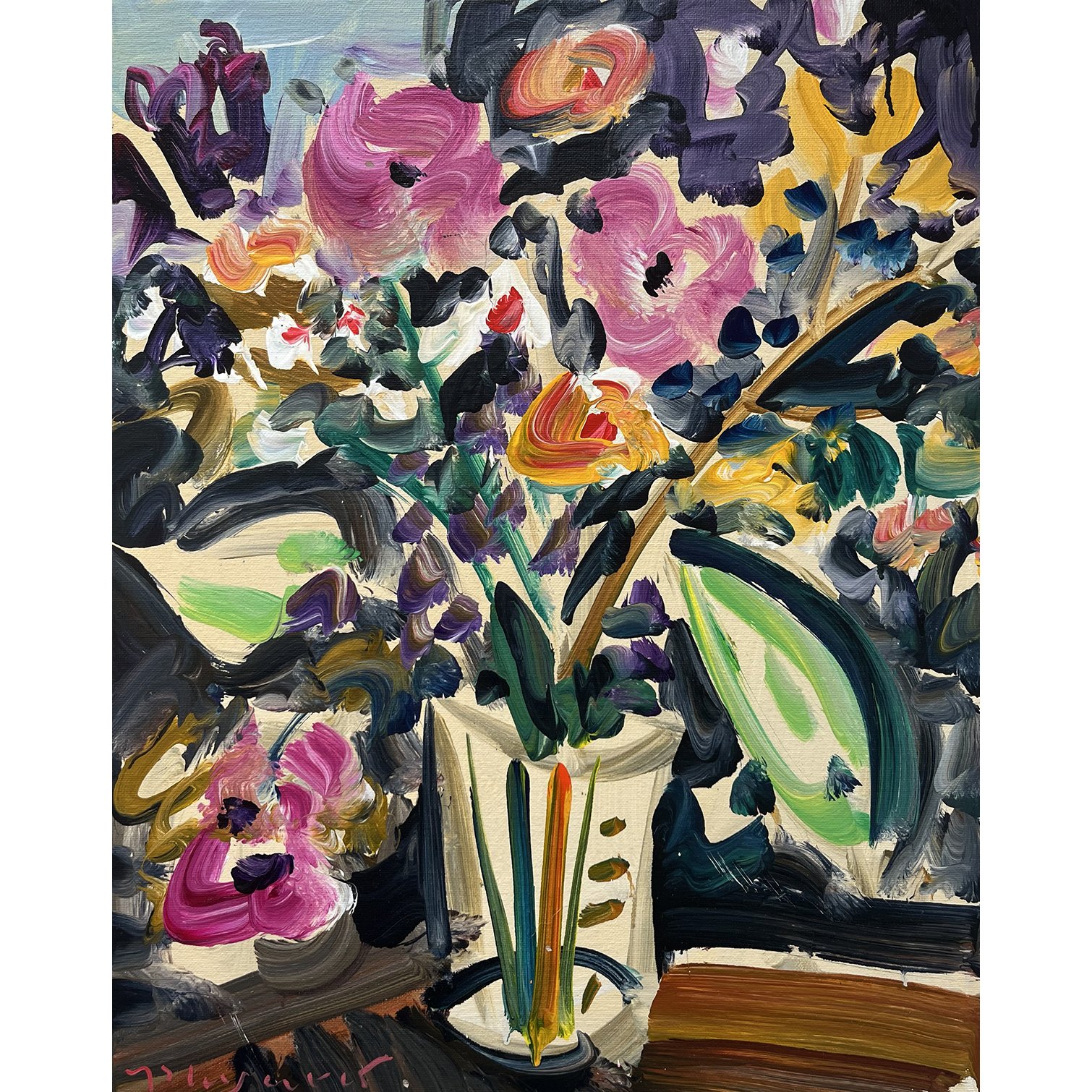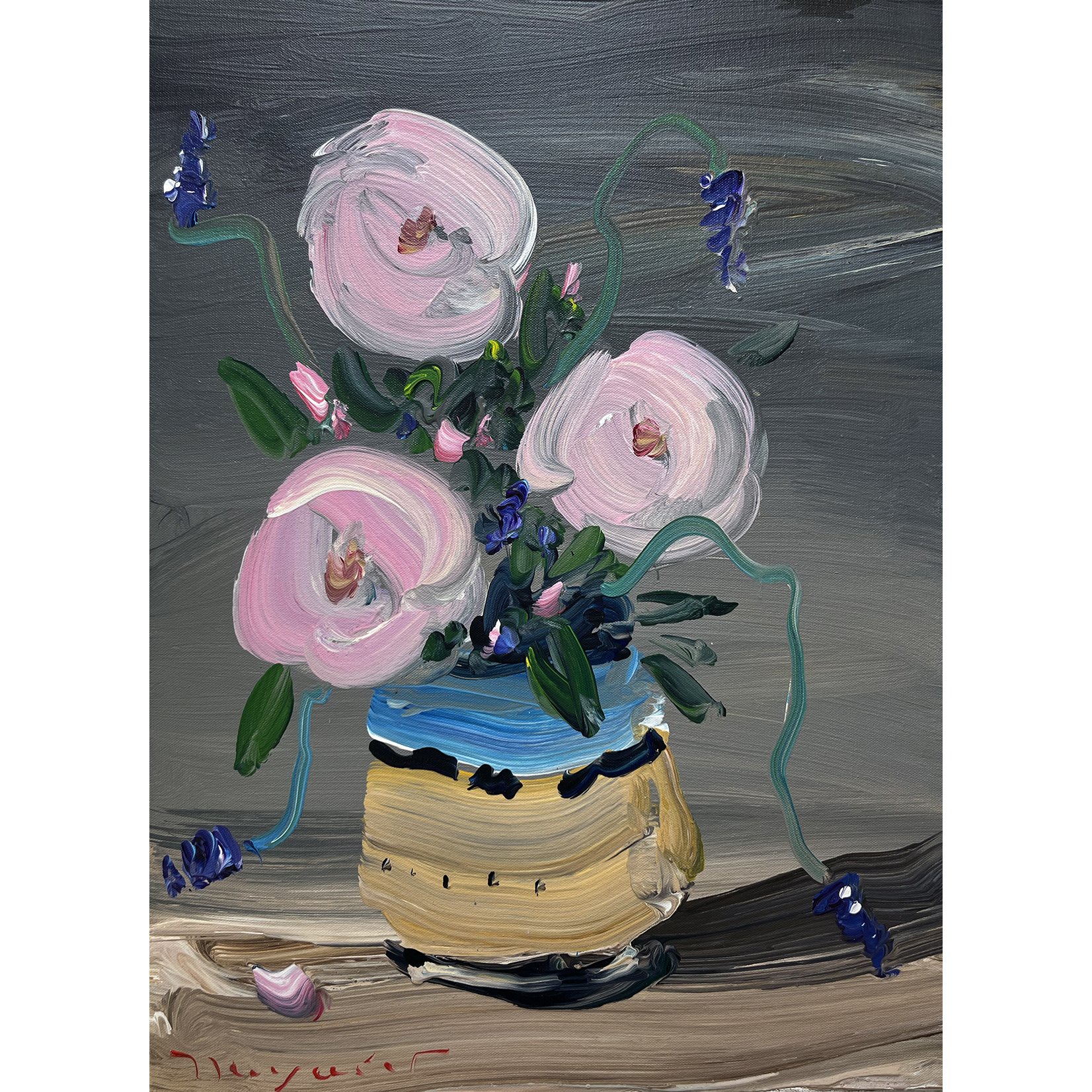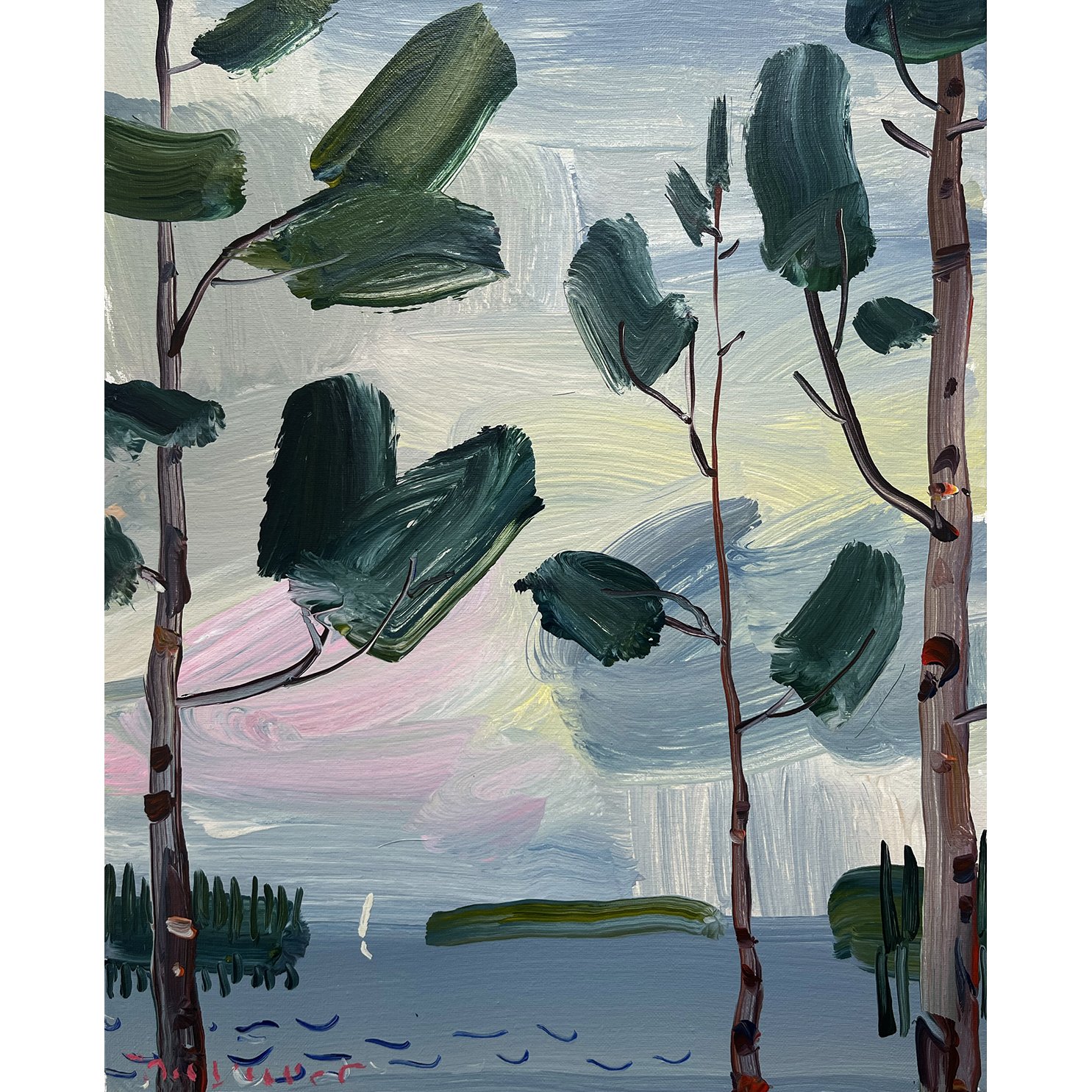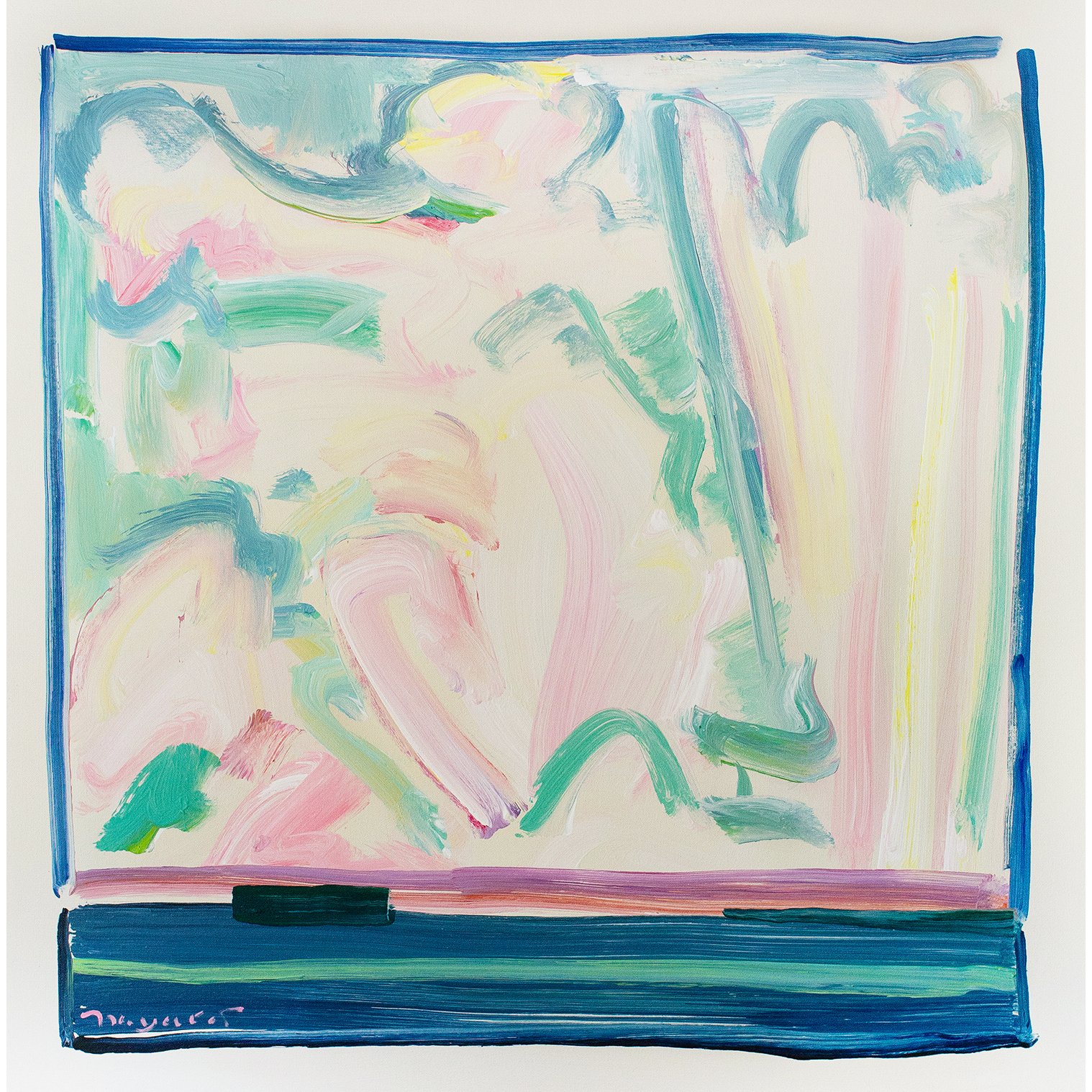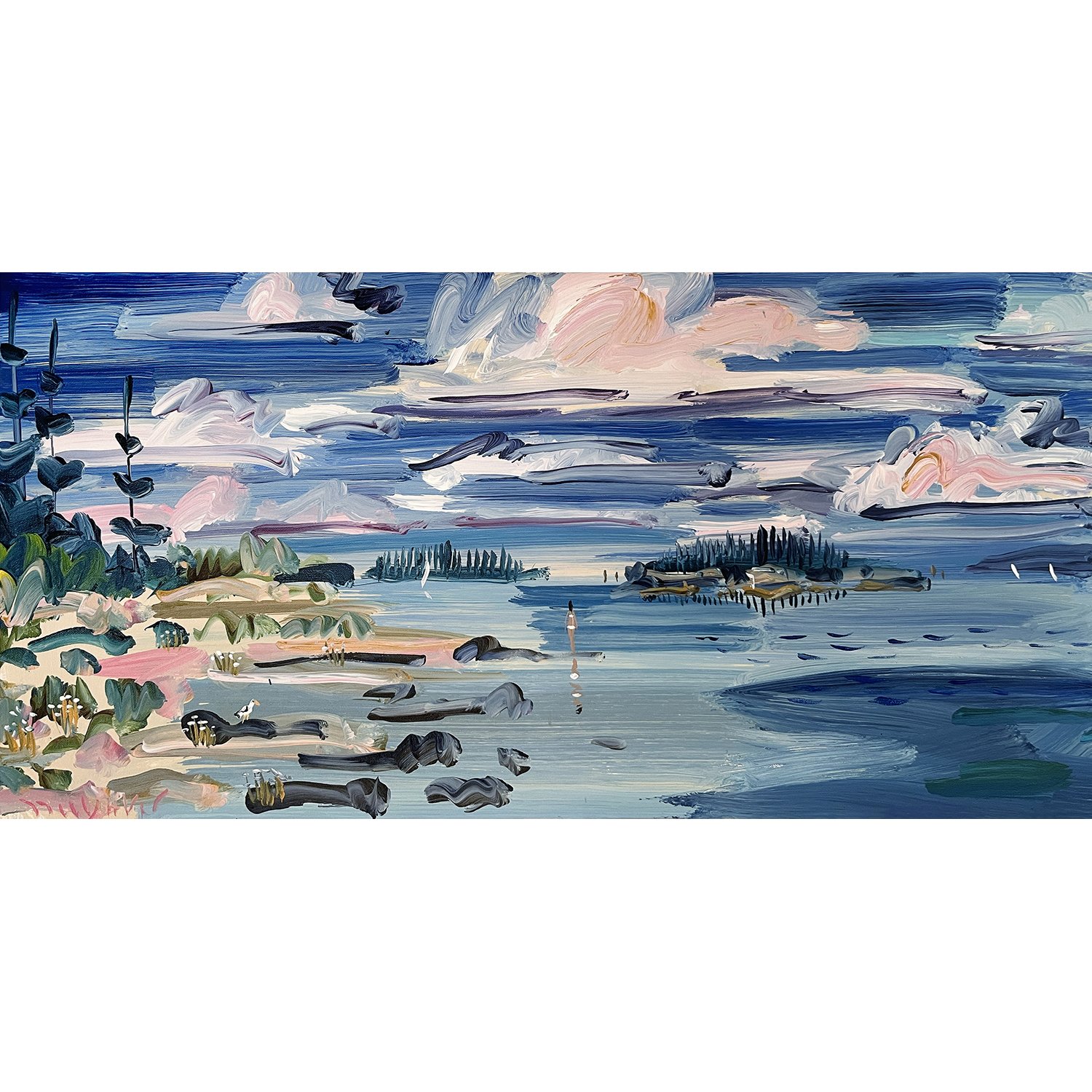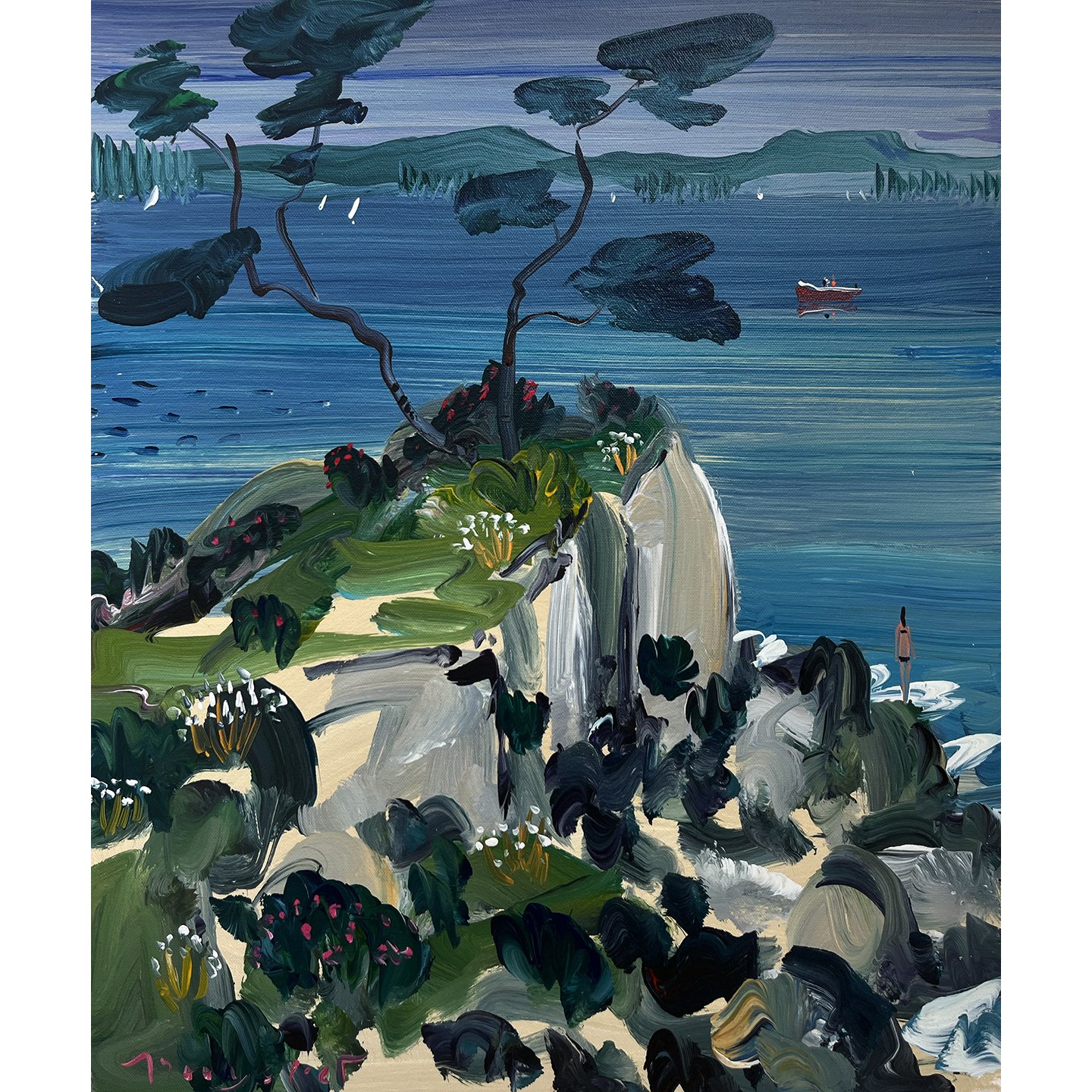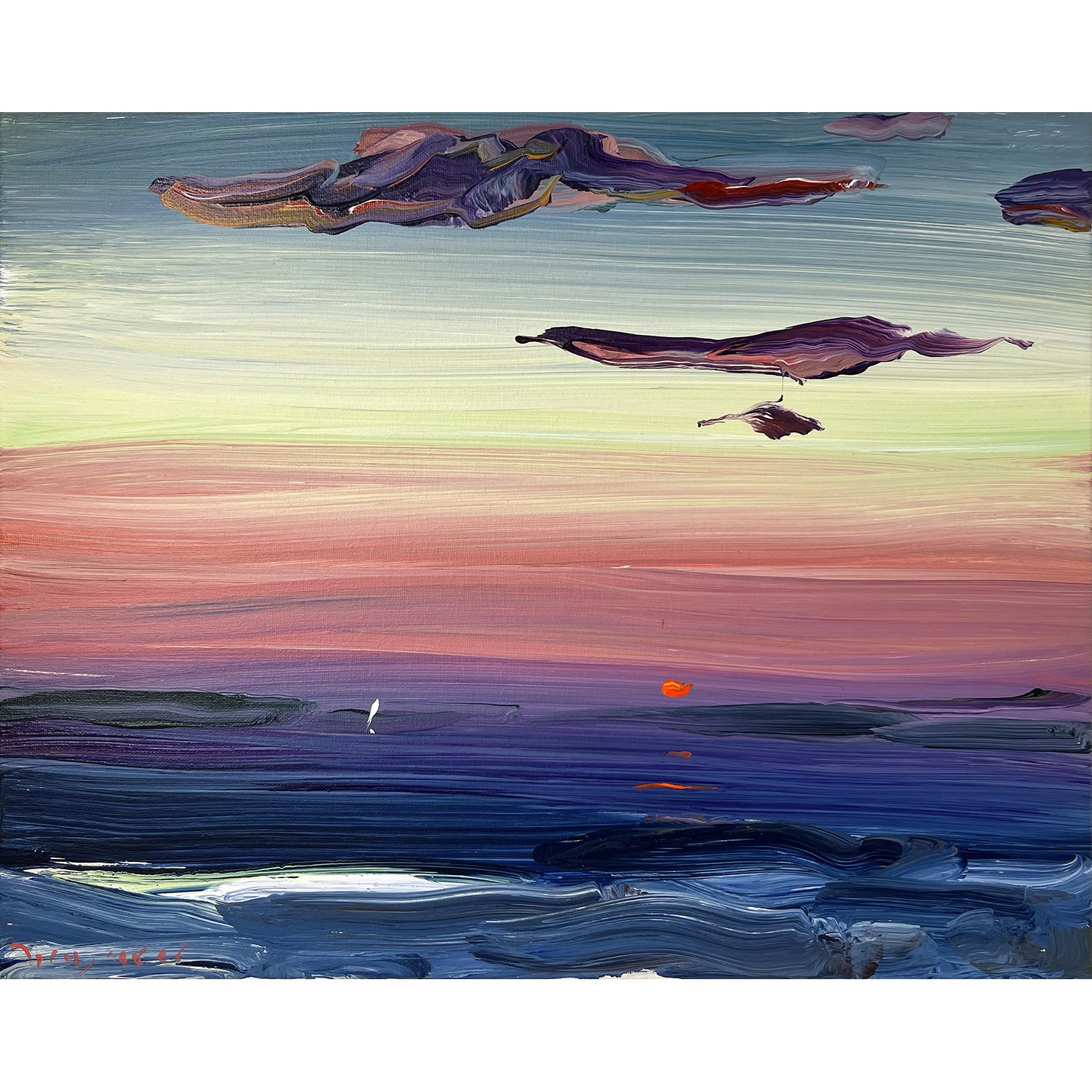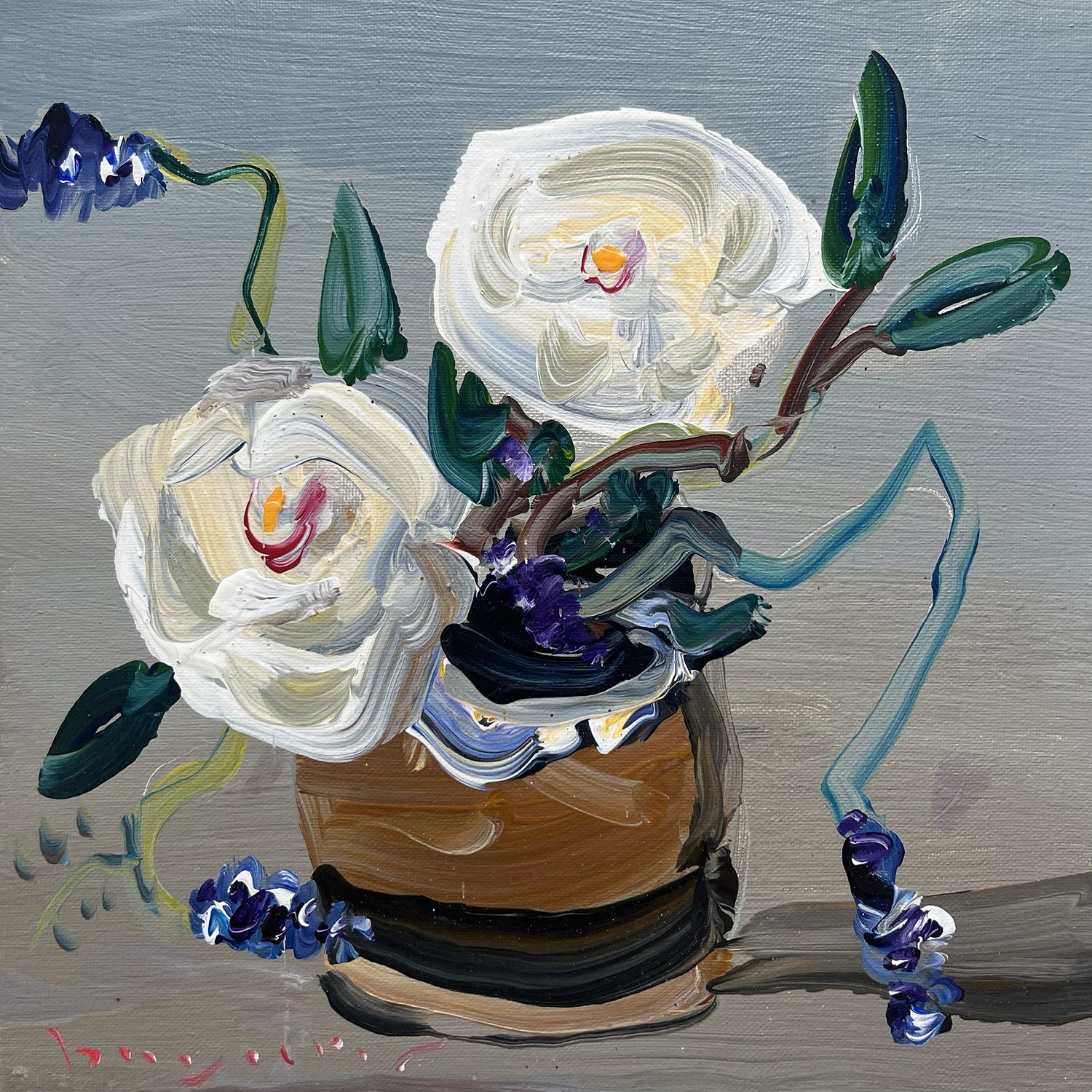Bayard Hollins is a contemporary artist who explores the relationship between abstraction and figurative representation through the bold, energetic paintings he creates. Educated in Italy, France, Spain, and New York, Bayard divides his time with family between Islesboro, Maine & Ojai, California.
Works by Bayard Hollins
Summer Bouquet 20 x 16in - $3,000
Pink Roses, 24 x 18in - $3,800
Morning Storm, 20 x 16in - $3,000
East Bay, 36 x 36in - $7,500
Afternoon Swim, 18 x 36in - $5,800
Rocky Point, 24 x 20in - $3,800
Coming In, 16 x 20in - $3,000
• Roses and Lavender - SOLD
• Still Waters - SOLD
• Shoreline Bouquet - SOLD
• Barred Island - SOLD
• Dark Harbor Moon - SOLD
• Little Cove - SOLD
Artist’s Biographical Statement
“I grew up with three brothers on a cattle ranch in the Santa Ynez Valley on California’s central coast. Our old ranch house was built by the painter Channing Peake, and my childhood was steeped in the lore of an earlier time. When I was young, I loved watching my grandmother paint, and so when I showed a proclivity in that direction, my parents encouraged me to pursue my passion. I was painfully introverted and so my artistic expression gave me a means of communicating with a world that seemed out of reach.
My childhood was also consumed by a love of the outdoors. When I wasn’t riding the range or working in the fields, I was down fishing in the Santa Ynez River or hunting wild hogs up in the hills. I attended the Thacher School in the Ojai Valley and upon graduating I fled to Europe to become an artist. My search eventually led me to Florence where I found the old world classical training I was hungry for. My artistic studies took me from Provence, to Spain, Florence, New York, California and Mexico. I was consumed by learning from other artists. I skipped the diplomas and degrees. I’ve shown my work continually in galleries, museums and good places along the way.
These days I divide my time painting on a small island off the coast of Maine in the summer and then back to my home in Ojai, where I live on a tiny farm with my wife, two kids, dogs, a cat, chickens and a growing herd of goats.”
Artist’s Statement
“There are many influences in my work. However, the dominant theme is the interaction between classical realism and abstract expressionism. I believe an unrefined painting is truer to the rawness of nature and my own emotions. When early references are suggested rather than spelled out, space is created for the painting to move, breathe, and grow in the viewer’s imagination.”

